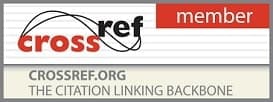
Printed Journal | Refereed Journal | Peer Reviewed Journal
2023, Vol. 5, Issue 1, Part A
A study to evaluate the effectiveness of educational intervention on knowledge regarding pressure sore among basic BSc nursing students at nursing college, BIMS, Belagavi
Valmiki Pattennavar and Dr. Meenaxi R Devangmat
Background of the study: A study, titled “A study to evaluate the effectiveness of educational intervention on knowledge regarding pressure sore among Basic BSc nursing students at nursing college, BIMS, Belagavi”, The poor blood flow to parts of body leads to ulcer at that areas. Immobility, unconscious, or unable to sense pain are the main reasons and has an effect on individual functions restricted to bed. It can lead to constant pressure. Pressure sores, an injury to the skin and underlying tissues occur as a result of direct unrelieved pressure of soft tissue against bones. It happens on areas of the skin that are under pressure from lying in bed, sitting in a wheelchair or wearing a cast for a prolonged time. A bedsore can become deep. It can extend into the muscle and bone. Once a bedsore develops, it is often very slow to heal. Depending on the severity of the bedsore, the person's physical condition, and the presence of other diseases (such as diabetes), bedsores can take days, months, or even years to heal. They may need surgery to help the healing process. Hence students play an important role in preventing pressure sores during clinical posting.
Results: The results of major findings indicated that, in pretest Basic BSc nursing students had inadequate knowledge in various aspects of pressure sore and its prevention. Educational intervention was found to be a very effective method of providing information regarding pressure sore and its prevention. The mean post-test level of knowledge is significantly higher than the mean pre test knowledge scores “t”=P<0.01. There was no significant association between the findings and the selected demographic variables.
In post-test knowledge score ranged from 40–46, whereas the pre-test knowledge scores ranged from 10-25. The mean post-test knowledge scores (χ2 = 45.00) was apparently higher than the mean pre-test knowledge score (χ2= 17.04). The median of post-test knowledge score (M2 = 45.00) was higher than the median of pre-test knowledge score (M1 = 17). Calculated ‘t’ value (‘t’= 58.11, p<0.001) is greater than table value, which represents the significant gain in knowledge, through the Educational intervention. Hence the hypothesis H1 was accepted. Thus it suggests that the educational intervention has been effective in increasing the knowledge of Basic BSc nursing students about pressure sore and its prevention. The association of the knowledge scores of Basic BSc nursing students with their selected socio-demographic variables shows that, there is a no statistical significant relationship between gain in knowledge and personal characteristics like age, gender, professional education, experience, area of work. Hence the hypothesis (H2) rejected.
Interpretation and Conclusion: The study concluded that the educational intervention on pressure sore and its prevention was an effective method for providing moderate to adequate knowledge and help students to enhance their knowledge to provide effective nursing care to clients.
Implications for clinical practices: On the basis of findings, it is recommended that a similar study may be replicated issuing a large number of respondents. It is also recommended that the other methods of teaching with frequent reinforcement be implemented for improving the knowledge of pressure sore and its prevention.
Pages : 36-39 | 590 Views | 272 Downloads

How to cite this article:
Valmiki Pattennavar, Dr. Meenaxi R Devangmat. A study to evaluate the effectiveness of educational intervention on knowledge regarding pressure sore among basic BSc nursing students at nursing college, BIMS, Belagavi. Int J Adv Res Med Surg Nurs 2023;5(1):36-39. DOI: 10.33545/surgicalnursing.2023.v5.i1a.115
Related Journal Subscription





 Other Journals
Other Journals
